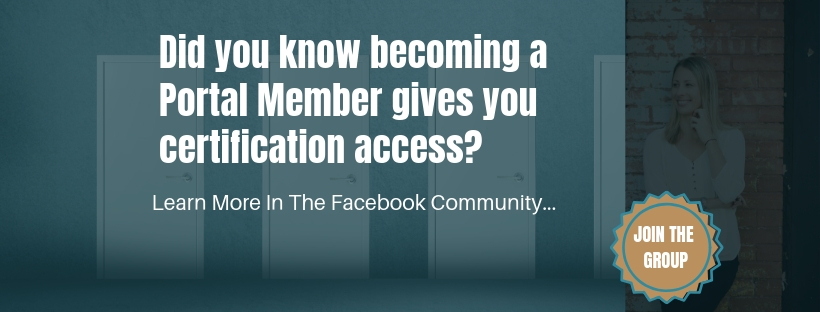
How to Shift Your Traditional Paraplanner Tasks to Fit Your Lifestyle
So, you’ve finally decided…you’re going to become a paraplanner. Congrats!
It’s true that paraplanning can sometimes be a challenging career choice—but you’re into the heavy research. You get a kick out of the in-depth analysis. And most of all, you love that you get to help clients make informed decisions and figure out how to reach their goals.
Note: This blog is part of our series on paraplanners. If you haven’t already read our first blogs, be sure to check them out!
But at the same time, just as with any other job, it’s important to figure out how to make this career work for you. The good news is that the paraplanner lifestyle offers a surprising amount of flexibility. Which means you get to decide how to create the perfect work-life balance, and (to some extent) what the job will look like.
The Perks of a Paraplanner Lifestyle
We’ve mentioned this before, but the “paraplanner” job title is relatively new to the financial industry. It arrived on scene within the last twenty years, at a time when financial planners and advisors struggled to do in-depth research and tackle client-facing work. Paraplanners stepped in to prepare detailed reports and advice for clients, and to support front office workers in doing so. And the first planners sometimes ended up doing a little of everything, including occasional administrative work.
Today, there are still no real “standards” in terms of paraplanning. The main idea is still to take a little work off of the lead planner’s desk, tackling the technical and analytical aspects of their work. This means the job responsibilities (and the paraplanner lifestyle as a whole) are constantly changing. To meet industry or company needs, one paraplanner’s responsibilities may be wildly different from another’s. Lucky for you, this is pretty good news! To some extent, it allows you to work with your company to ensure the job looks like something you want. And if you’re hired by a company that’s never had a paraplanner before, there’s usually a lot of room to build out the kind of work you prefer.
Take on certain analytical tasks, or work with clients more often—in the world of paraplanning, it’s all up to you. Here are a few ways you can make sure you’re shifting the traditional work more toward your passions, creating a lifestyle you truly love.
1. Reach for Higher Paraplanner Qualifications
Okay, we did just say there are no standards in the world of paraplanners. And for the most part, that’s pretty true! There are no official qualifications needed to become a paraplanner, though jobs may require certain ones. And once you become a paraplanner, there’s really no official career track, either. You can move up to become lead financial planner, tackle more client-facing work, or stay on as a paraplanner indefinitely.
However, despite the fact that there are no set standards, it’s pretty important to have as many skills and qualifications as you can.
Here’s why: more and more people are beginning to see paraplanning as a way to get a foot in the door in the financial industry. Essentially, the job’s getting more and more competitive! So when you want to be sure you’re the one whose resume really stands out from the crowd, you have to go the extra mile.
In a previous blog, we mentioned some key qualifications that can help you in your paraplanner career:
- Getting a Registered Paraplanner certification (RP) from the Financial Industry Regulatory Authority (FINRA)
- Becoming a Certified Financial Planner (CFP)
- Becoming a Certified Public Accountant (CPA)
These qualifications make you much better equipped for any tasks that come your way as a paraplanner. Plus, they put you head and shoulders above others who don’t have the qualifications.
Most importantly, they give you a little extra bargaining power when it’s time to help shape your paraplanner lifestyle. If you’re trying to show you love certain reports or analysis, pointing out your paraplanner qualifications will help!
2. Take on a More Client-Facing Role
In the early days of paraplanning, paraplanners spent most of their time in the back of the office. Traditionally, they were busy doing the research and analysis that the company required. And the majority of their focus was on quantitative data.
On the other hand, today’s paraplanner has the opportunity to become more client-facing than ever before. If you’re passionate about getting collaborative facetime, try reaching out for more client access.
Paraplanners are a great resource in client meetings. Addressing research questions, making on-the-spot recommendations, and explaining analytical details all fall under the paraplanner’s umbrella. Essentially, paraplanners who enjoy working with clients can add a lot of value to their team’s strategic planning.
If this sounds like something you’re interested in, it can help add some fun and complexity to your paraplanner lifestyle. With a focus on both back-office and front-office tasks, you can shape a much bigger role for yourself than traditional paraplanning work!
Virtual Paraplanning
As with most jobs, paraplanning started out as an in-person job. Today, we’re increasingly moving our work online—and paraplanning is no exception.
More than ever, companies are turning to virtual paraplanners for help. Many of them seek outsourced paraplanners, especially to tackle difficult, one-off analytical tasks. Changing industry regulations, technical and research-based work, and compliance reports can be tricky for smaller firms. Rather than struggling to do these highly specific tasks themselves, they hand them off to experienced virtual paraplanners who are trained in (and enjoy!) this type of work. This is especially true for firms who can’t find a paraplanner with the required experience in their geographical area. In this case, they simply hunt further afield—online.
As a paraplanner, this frees you up for a lot of opportunities to adapt your tasks to fit your lifestyle. Whether you work on a contract basis, or as a full-time, remote paraplanner, virtual work often gives you the opportunity to spend more time at home with your family. And as a contract worker specifically, you’ll find the freedom to take on more of the paraplanner tasks you enjoy—and less of the ones you don’t.
At the end of the day, your paraplanner tasks should fit your specific passions, whatever those may be. Working with your company to find that balance can be tricky, but it makes all the difference in the world in terms of your personal lifestyle! Looking for like-minded individuals who are within the financial industry? Good, they are inside the Simply Paraplanner Community.
Are you a Certified Financial Planner?


